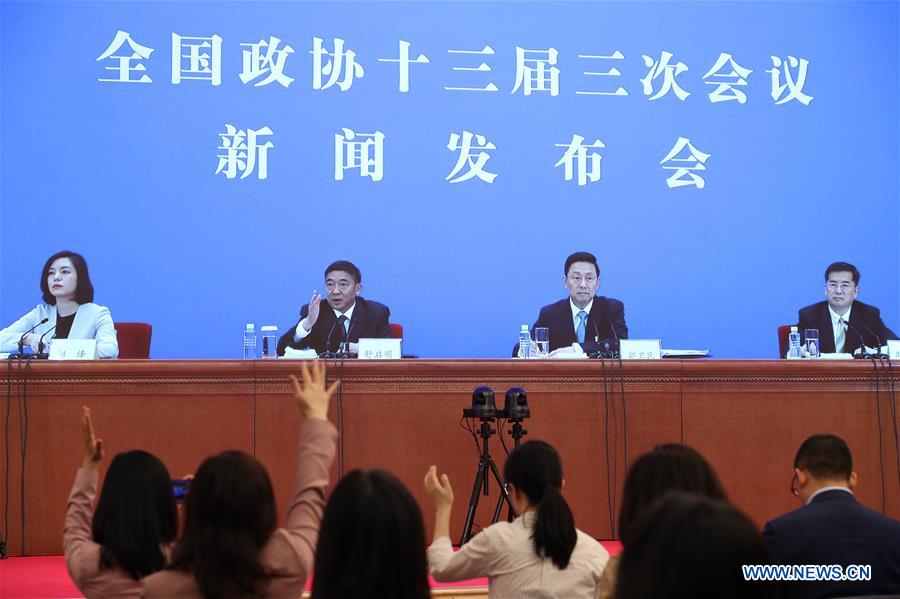China's top political advisory body to hold annual session from May 21 to 27

Journalists raise hands to ask questions in front of a screen during a press conference of the third session of the 13th National Committee of the Chinese People's Political Consultative Conference (CPPCC) through video link in Beijing, capital of China, May 20, 2020. The CPPCC National Committee held a press conference on Wednesday afternoon, ahead of the top political advisory body's annual session. Guo Weimin, spokesperson for the third session of the 13th National Committee of the CPPCC, briefed media on the session and took questions through video link due to epidemic response. (Xinhua/Lyu Shuai)
BEIJING, May 20 (Xinhua) -- The National Committee of the Chinese People's Political Consultative Conference (CPPCC), the country's top political advisory body, will open its annual session on Thursday afternoon in Beijing, a spokesperson said Wednesday.
The session is set to conclude on May 27, Guo Weimin, spokesperson for the third session of the 13th National Committee of the CPPCC, told a press conference.
Amid regular measures to prevent and control COVID-19, this year's session will be shorter than previously planned.
During the session, the number of plenary meetings and group meetings will be reduced, Guo said, noting that one of the plenary meetings will be held via video link.
Foreign diplomatic envoys to China will be invited to observe the opening and closing meetings of the session, he added.
A number of Beijing-based Chinese and foreign reporters have been invited to cover the event at the Great Hall of the People, he said.
Guo also briefed the press conference on the main items of the agenda.
During the session, political advisors will hear and deliberate a report on the work of the Standing Committee of the CPPCC National Committee and a report on how the proposals from political advisors have been handled, Guo said.
The political advisors will sit in on the third session of the 13th National People's Congress as non-voting participants, hearing and discussing reports including a government work report, as well as a draft civil code, the spokesperson noted.
Documents including resolutions will be reviewed and passed at the session.